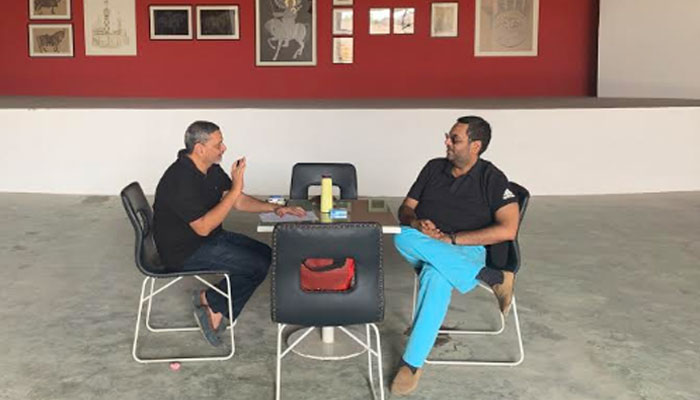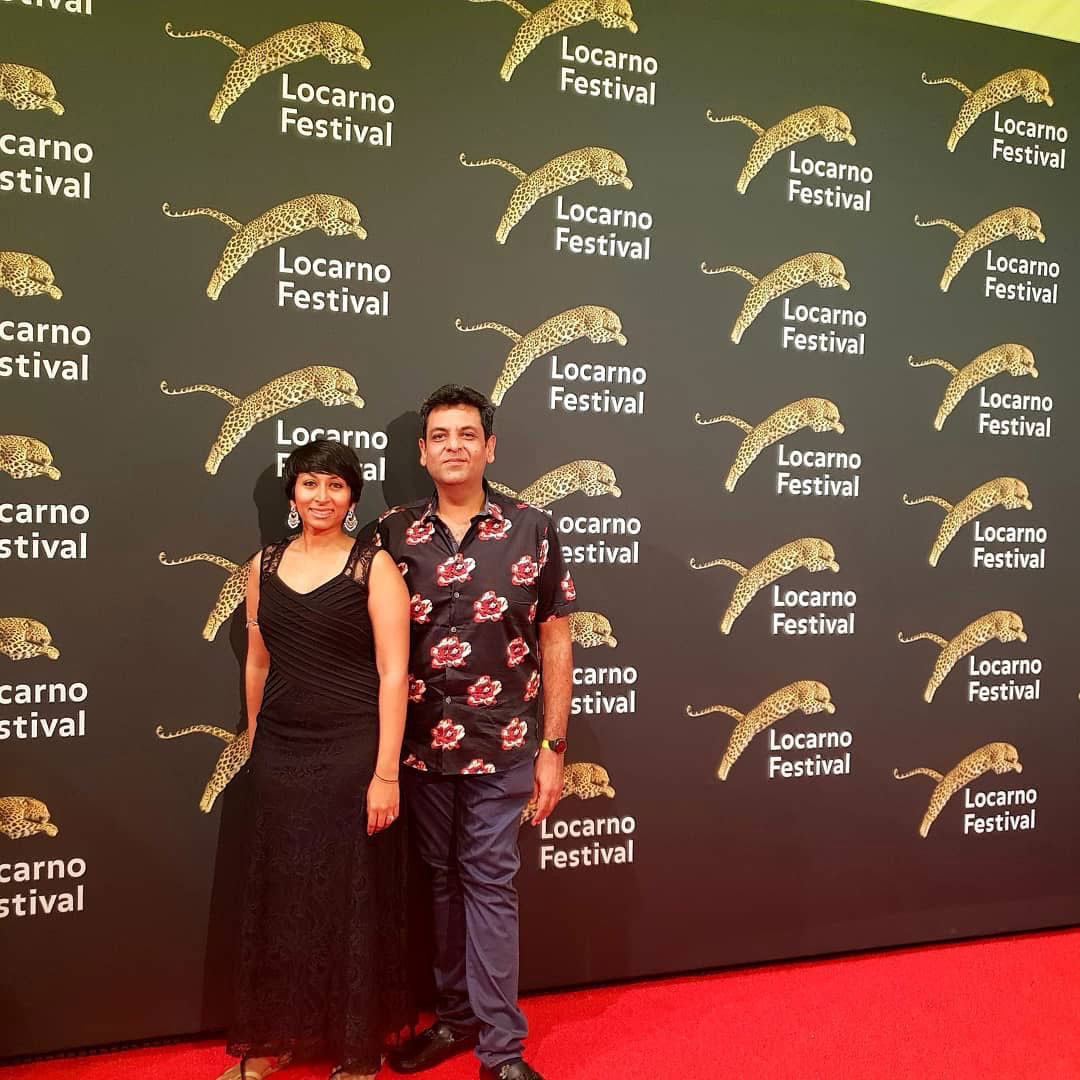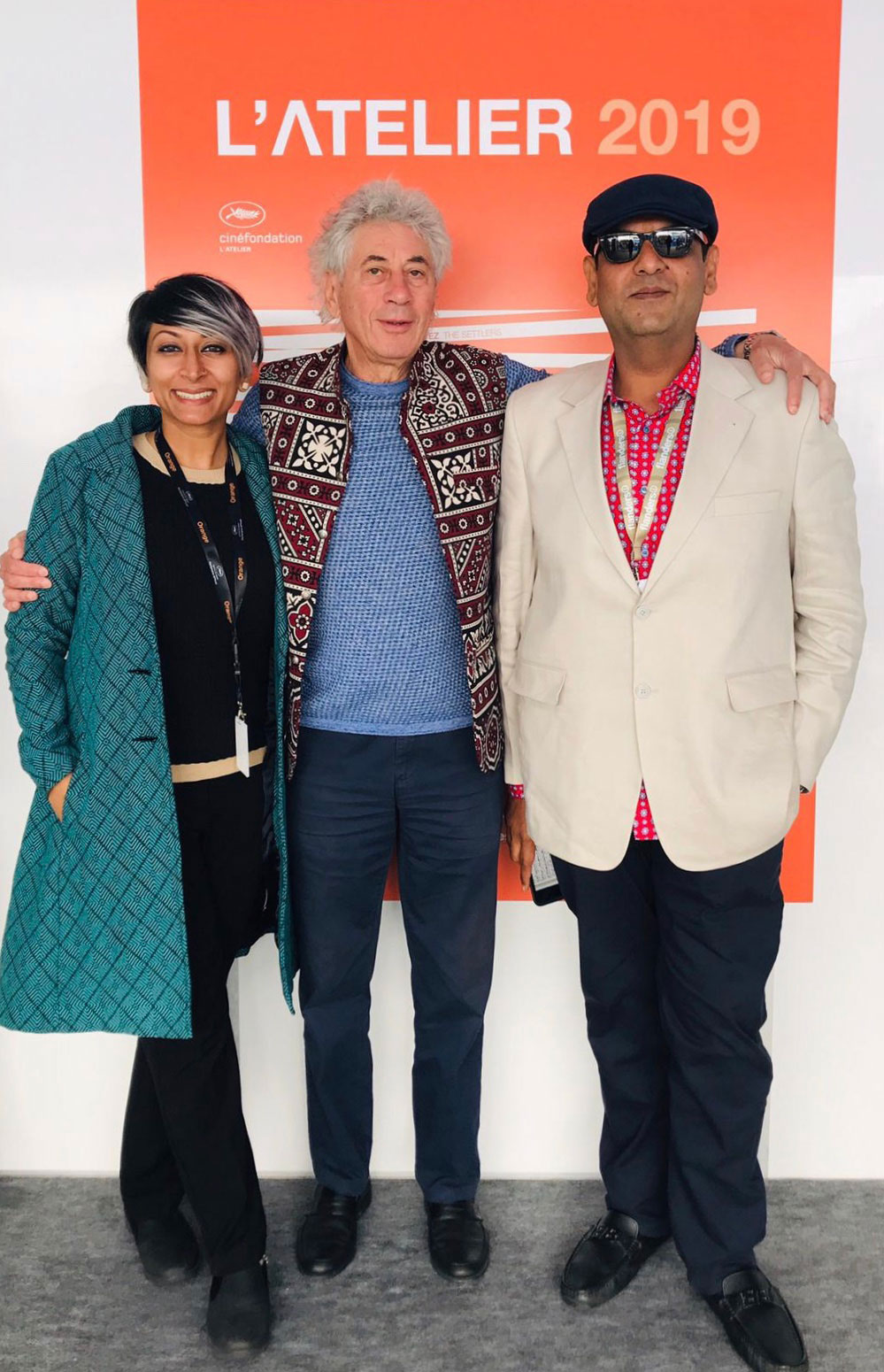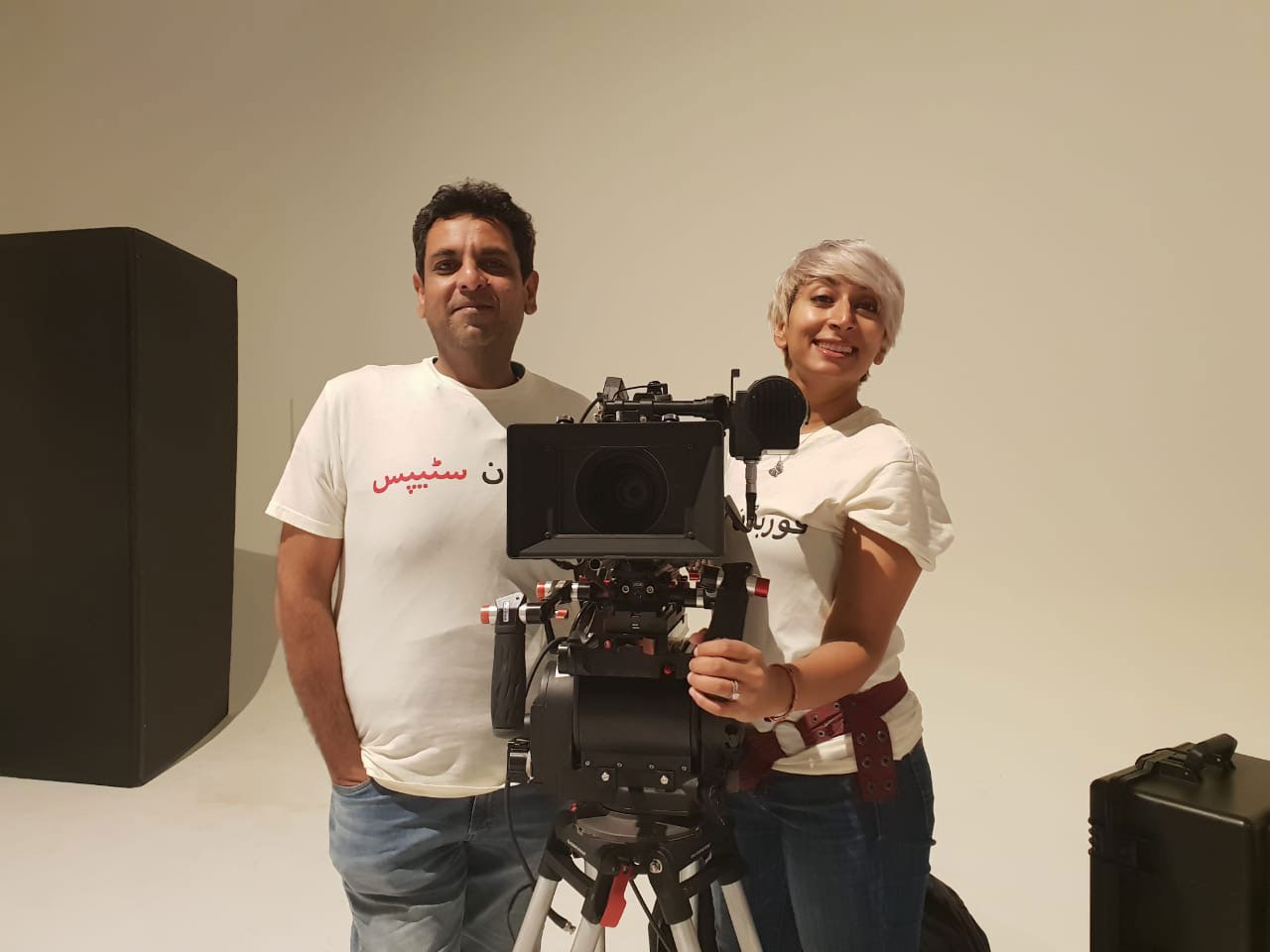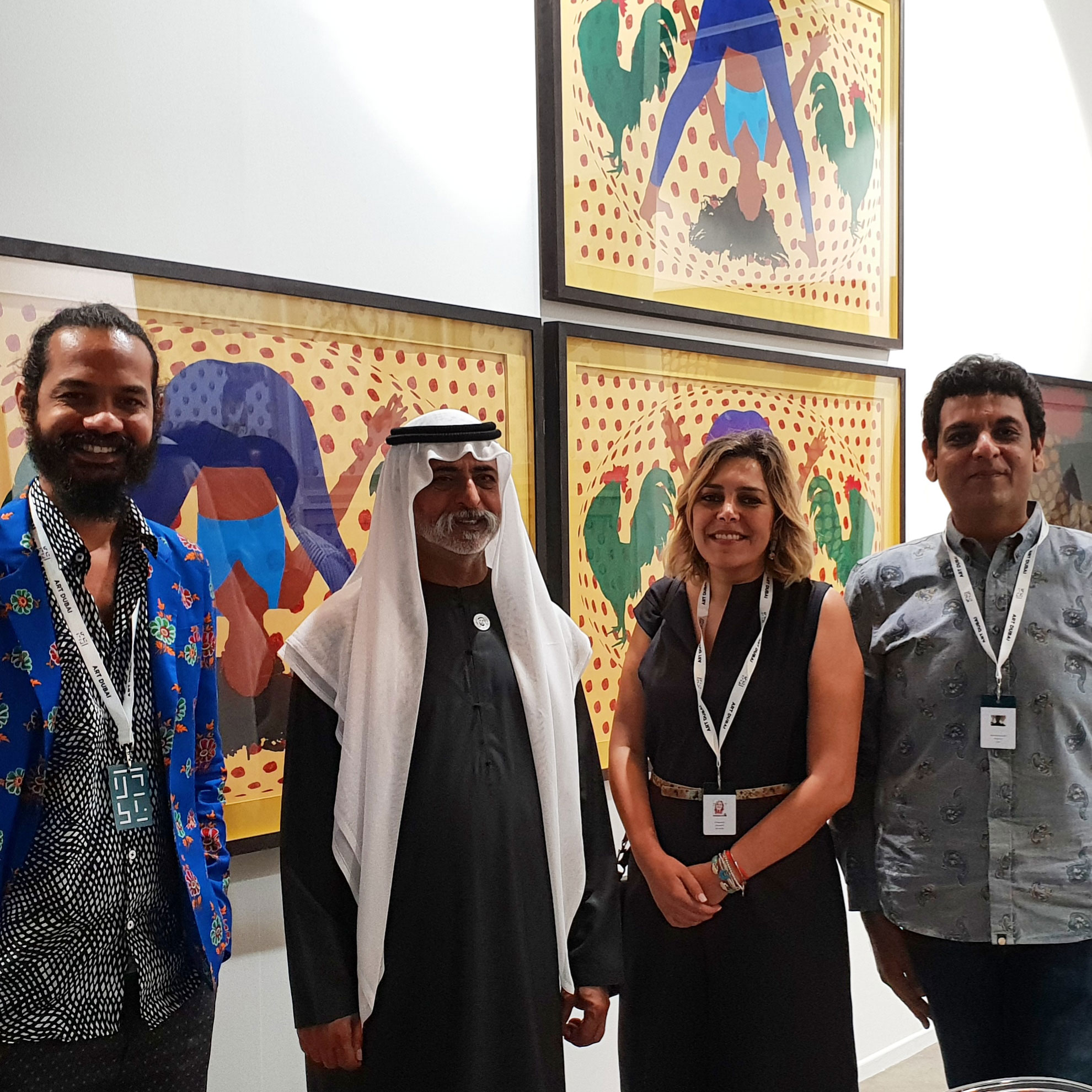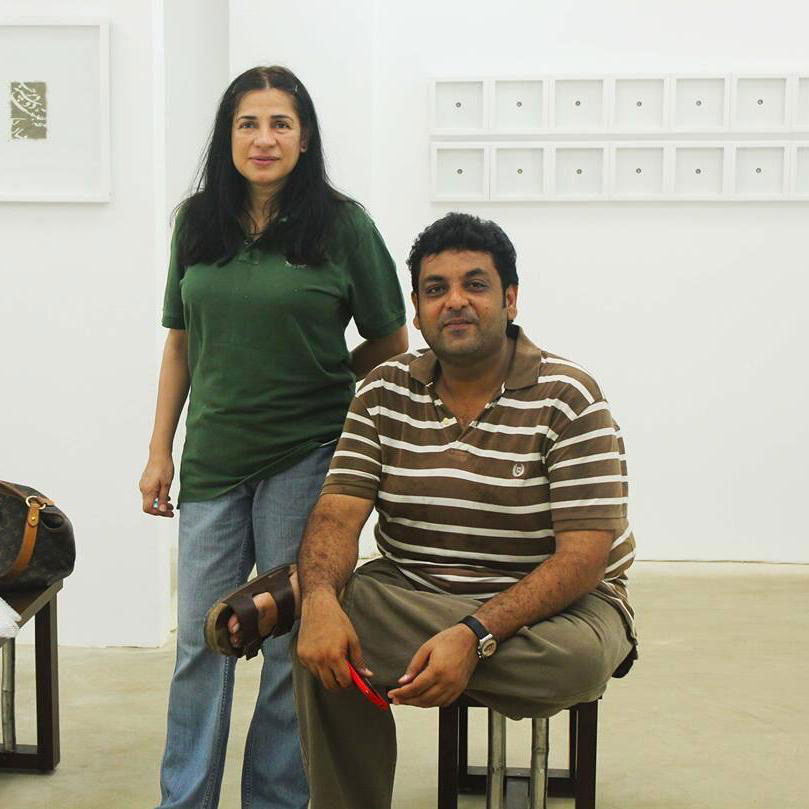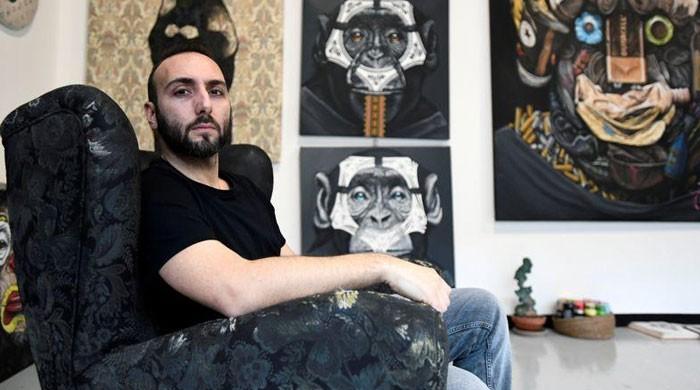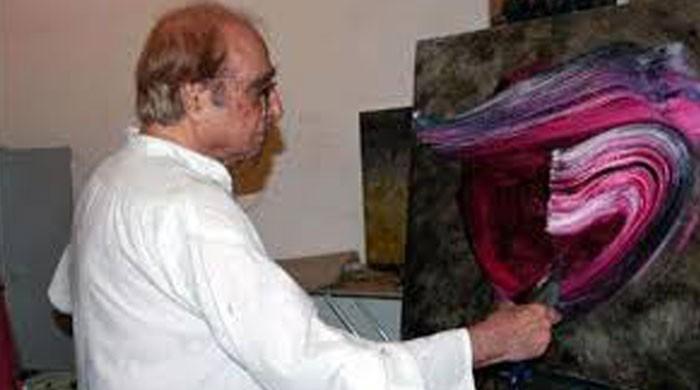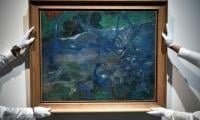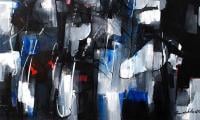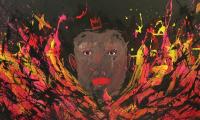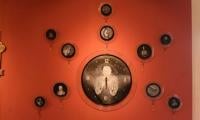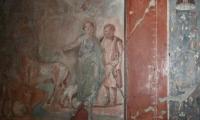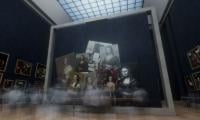In conversation with the man behind Sanat art gallery
Abid Merchant came to the decision to quit his banking profession of over 20 years and start his own visual art space called Sanat Initiative
“You hear? Sanat is closing. It’s over…”
“Yeah….That guy, Abid Aziz Merchant, he’s totally left the art-scene!”
“Of course, he is all in films now. Seen social media lately?”
Six years ago, Abid came to the decision to quit his banking profession of over 20 years and start his own visual art space - Sanat Initiative - which over the years has garnered the rightful place as Pakistan’s top-tier art spaces. I was especially concerned about what was being whispered as I’ve known Abid for over a decade and decided it was time to get to the bottom of this matter. We, in the art community, have all been hearing the speculation, the whispers, and alarming guesses about what’s going on. Now, let’s hear from the man himself.
Nadeem Zuberi (NZ): Let’s start from the beginning! I’ve known you from your days as a career banker, who frequented art shows and was known to be the few collectors who truly understood art. How did you arrive at the decision to start your own gallery?
Abid Aziz Merchant (AAM): What drove me to open the gallery was to further enhance the awareness within Pakistan about contemporary art. You see, as an art collector, my private collection mostly comprised of contemporary artwork that is about the ‘here and now’, making it thought-provoking, socially relevant, and even politically charged. They are literally the opinions, perspectives, feelings, and observations of the creators, and therefore I’ve always been of the opinion that artists are communicating with us, with society. It’s tragic how the artists’ endowments, their talent, their intuition, their interactions and views on recent events and histories are just not received by anyone.
Sanat Initiative (Sanat) strives to ensure this vital communication between art and society is maintained and presented in a way that is meaningful to both artists and audience. In order for contemporary art to grow and innovate, there needs to be a paradigm shift, and Sanat has been trying to facilitate that through featuring visual art irrespective of its medium, while also providing emerging, mid-career as well as established artists with a platform for ambitious projects that demonstrate new and experimental streams of thought.
Sanat was established not to sell art only.
NZ: Well then, why do we have an exhibition or show every fortnight? And why publish catalogues for every event? In five years, there have been over 120 shows and each one has a publication. Why invest all this money, effort and time, if not to sell art and make a profit?
AAM: If I wanted to continue making money, I would have stayed in banking! (Laughs) Sanat has planned and executed a total of 125 events in total, to date. Yes, there is a major investment of time, hard work, dedication, as there is monetary investment, as well. I don’t mean to sound like a broken record, but while there is nothing wrong in turning a profit, and that money is absolutely necessary, my aim through Sanat has been to facilitate this dialogue, between art and society, and for awareness-building, inside and outside the country, about contemporary art from Pakistan. This dialogue and discussion are important and ongoing, and so it is necessary that we hold an event on a regular basis because the conversation must continue! Things need to be said, heard, understood, and discussed even further, and so the frequency with the shows and events at Sanat.
The publications, yes, there is documentation for almost every show - that is a major part of operations at Sanat. Why? Because by doing this, we are steadily building an archive of shows from the last five years, and the evolution of contemporary art in Pakistan, in the past five years, has been recorded, and will, InshAllah, continue to be recorded. These documentation efforts have brought new writers to lend analyses and insights to art and attracted intrepid curators to come forward and present experimental streams of thinking, further promoting Pakistan’s contemporary art, especially important given because of the absence of major efforts from the government to preserve and promote our own art and art history.
NZ: Sanat’s held several artists’ residency programs. Can you please discuss that with us?
AAM: The relationship between artists and society lies also in the working itself - the creative process. Sanat’s residency programs, of which there have been five, to date, have provided artists a platform to work upon and possibly experiment with their skills, arrive at new ways of expressing, expand their understanding and practice of art. In a small, and hopefully meaningful way, Sanat has fostered the growth of its resident artists, and thereby facilitated the advancement of contemporary art from Pakistan at this micro-level.
In fact, we are currently developing a residency program outside Karachi.
NZ: So, there are future plans for Sanat, it seems. Now that you’ve brought it up, care to address the rumours about Sanat closing, about you leaving the art scene?
AAM: (Laughs) Cannot really blame the rumour-mill for churning out what is has! In fact, I understand why people are saying such things, and there is an explanation, albeit probably not as spicy or exciting. I have no major revelation, really, but maybe some clarifications to make.
Yes, the Sanat that everyone is familiar with has closed. We are no longer in Clifton’s uber-posh Block 4 area. We have relocated. Sanat is now located inside Commune Artist Colony and has over 6,000 square feet of exhibition space now! Through technological advancements and innovation on the part of our artists, it was becoming necessary that the ever-growing vernacular of art and the courageous experimentation by our artists have an appropriate space to show and interact with the audience. Sanat is no longer constrained physically and given the versatility of the large space, and its location, I foresee Commune Artist Colony becoming a hub of arts and culture in Karachi, and for all of Pakistan.
Have I left the art-scene? I think it is obvious, but let me emphatically say so, that no, I have not! What has happened is that Sanat’s now ventured into filmmaking. Of course, I have been sharing and posting about Sanat’s film projects on my social media, because they have been so well received.
Basically, planning and executing artist residencies, participating in international art fairs, consistent launching of publications and monographs on contemporary art and artists, organizing performances, convening discussions and talks on art, and regular exhibitions will, InshAllah, all continue. We also have plans for a mentorship program in which visual artists, filmmakers, and even musicians will be able to participate. It is my hope that with this new location, we will be able to include even more genres of art and continue showcasing experimental and innovative artists who will take Pakistan’s contemporary art into the future.
NZ: I do recall some of your posts about films at international film festivals. Did not realize Sanat’s role in all that. Can you please shed light on all this? You are now a filmmaker? This is major news!
AAM: Film is also art. In fact, it’s a form of visual art that encompasses performance art, music, writing, and storytelling. Maybe all the artists I’ve been working with inspired me! As they experiment and expand upon the vernacular of art, I decided to embark upon producing and promoting another form of visual art.
Inspiration aside, you must already have gathered that the audience matters. A decade has passed since the start of reviving Pakistani cinema, and it's evident that our filmmakers are utilising formulas of entertainment because they are presumed to be the only ways to garner an audience. In doing so, originality and good storytelling, possible only through a thoughtful script, have been lost.
I can understand, on the one hand, it’s an extremely difficult task to raise funds for making films in Pakistan due to the risks inherent to the business. But what is undeniable is that audiences are exhausted by the typical and tried-and-tested storylines. From my own experiences of the last five years through Sanat, I can say with surety that audience can and will appreciate a good composition, and that such a film has the potential to sell. There seems to be a growing rift between what is being delivered by filmmakers in the country, and what the audience seeks; engaging, local content that is easily relatable. Sanat recognises the need to move beyond replicating Bollywood and its associated glamour, and rather focus on a good storyline, direction, and acting, thereby setting higher standards that will create a niche genre of films based on local heroes and people.
Sanat has intrepidly embarked upon two full-length features and one short film. The first feature film I’ll Meet You There (Bismil), written and directed by Iram Parveen Bilal is a collaboration between Sanat Initiative and Parveen Shah Productions. Filmed in NYC in the fall of 2018, the bi-lingual independent film I’ll Meet You There (Bismil) is currently in post-production, and stars legendary actor Muhammad Qavi Khan, internationally acclaimed Faran Tahir, and introduces Nikita Tewani. I’ll Meet You There (Bismil) is about a Muslim cop who goes undercover at his estranged father’s mosque while his daughter hides her passion for a forbidden dance, uncovering a shocking family secret.
The second feature Wakhri (One of a Kind) also written and directed by Iram Parveen Bilal, is currently in development, and is one of eight projects from South Asia selected for Open Doors Hub at Locarno Film Festival in 2018, and one of the 15 projects from all over the world selected for Cinefondation’s Atelier at Cannes Film Festival in 2019. Wakhri (One of a Kind) is the story of a raunchy female Pakistani social media star who vows to change the status quo.
In collaboration with Rashid Maqsood Hamidi of Mansfield Films, along with CityLights Media Productions, the third film Sanat Initiative is working on is titled 1978. Written and directed by Hamza Bangash, 1978 tells the story of a rock star in Karachi in the 70s and how his life was affected by the policy of Islamization in the Country.
Understanding that films, as a means of communicating, have the capacity to, at the very least, introduce and expose an audience to new ideas and perspectives, initiate necessary conversations, and eventually usher a wider shift that can foster values of acceptance and coexistence in an increasingly polarized and intolerant world. It is now Sanat that is attempting a paradigm shift, and this time, in films.
-
Rare Gauguin fetches 9.5 mn euros at Paris auction
-
Vibrant compositions
-
Artist Mashkoor Raza's bold and soft compositions
-
Sanki King brings a burst of energy in graffiti
-
Remembering the forgotten
-
‘Being Edhi’ – means to serve humanity
-
New technique reveals lost splendours of Herculaneum art
-
Louvre offers virtual ´tete-a-tete´ with the Mona Lisa
